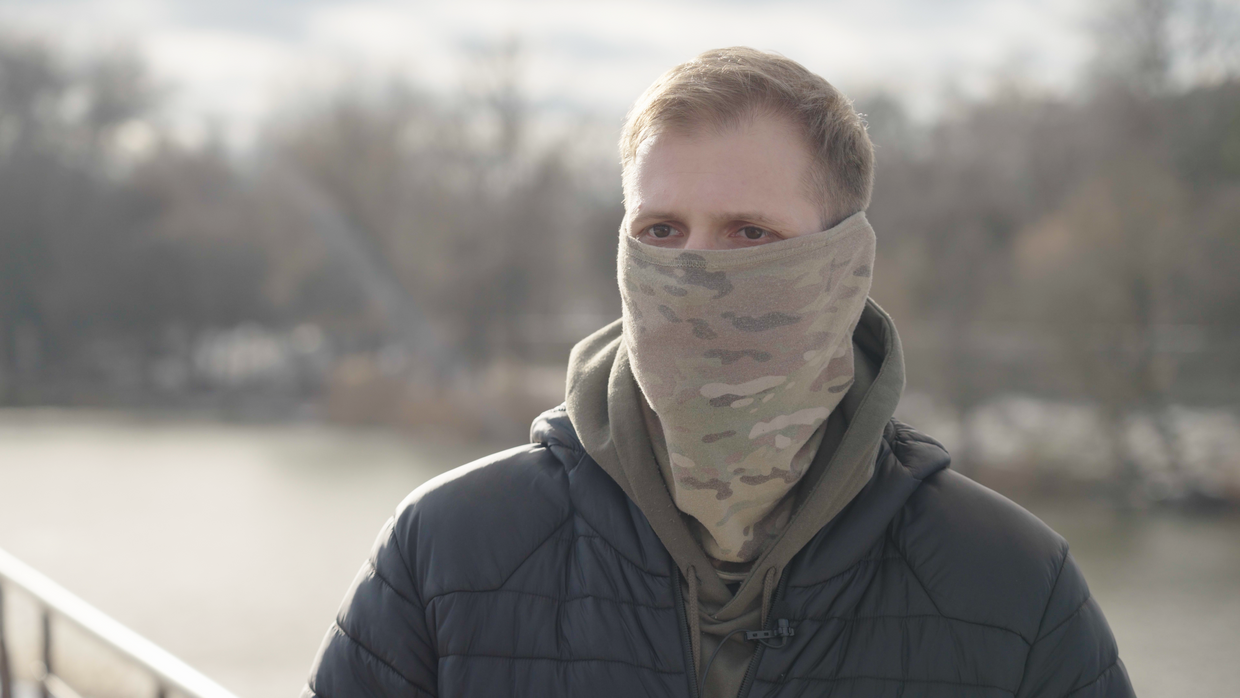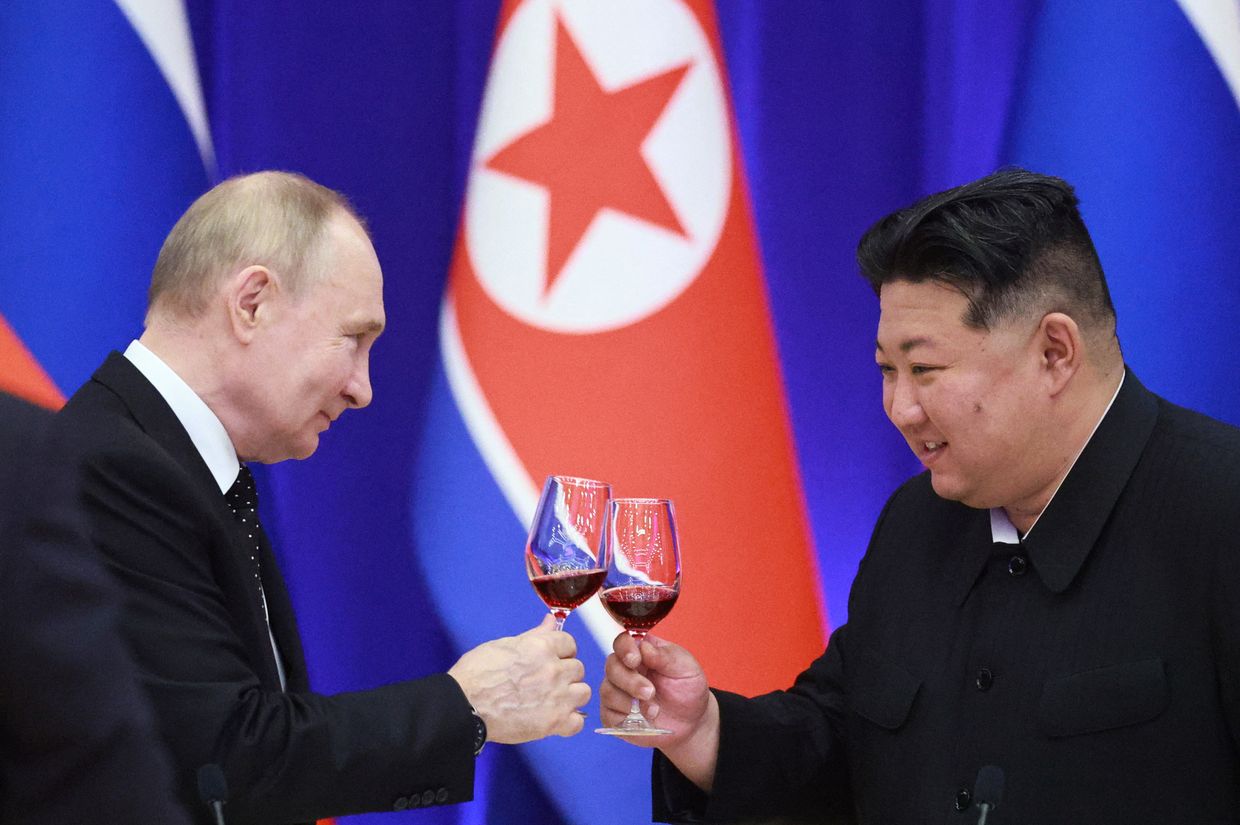'I didn't know who I'd be fighting' — North Korean soldier captured by Ukraine speaks in new footage

President Volodymyr Zelensky released on Jan. 20 new footage of the interrogation of a North Korean soldier captured by the Ukrainian military.
Ukrainian forces captured two North Korean soldiers in Russia's Kursk Oblast earlier in January. They are currently in the custody of the Security Service of Ukraine (SBU) in Kyiv. Both were wounded and are reportedly receiving medical attention.
The prisoner of war (POW) in the newly released footage said he arrived in Russia on a cargo ferry with over 100 soldiers. He was not trained with Russian military equipment but claimed that several other North Korean soldiers were taught to do so.
Communication between captured North Korean soldiers and SSU investigators continues.
— Volodymyr Zelenskyy / Володимир Зеленський (@ZelenskyyUa) January 20, 2025
Intelligence data on the movement of such troops to Russian territory, their training and complete information isolation have been confirmed by the prisoners.
All the facts about North… pic.twitter.com/E2wiFlPBiw
He joined the army at the age of 17 and served on conscript duty in a reconnaissance battalion, and said his mother does not know where he is now. He also said he did not know he was going to war, or know who he would be fighting against.
The full conversation conducted via a translator is as follows:
Interrogator: Did you and other North Korean servicemen undergo training on the use of Russian weapons and military equipment? If so, where and when?
POW/Translator: There were a few soldiers from North Korea who were trained to use heavy Russian equipment, but I personally did not undergo such training.
Interrogator: Where did you serve? In which unit?
POW: (I work) in a reconnaissance battalion.
Interrogator: Does your mother know where you are?
POW: No she doesn't.
Interrogator: How many people were on the ship that transported you from North Korea to Russia?
POW: Approximately over one hundred.
Interrogator: What kind of ship was it?
POW: I believe it was a Russian ferry, but not a military vessel — just one for transporting cargo.
Interrogator: Were only people on board or was there cargo as well?
POW: It was only us.
Interrogator: How many seats were in the train car you traveled in?
POW: The same people who were on the ferry were also on the train — there were no others, it was the same group.
Interrogator: Were there beds in the carriage, how many?
POW: There were six tables and beds. In total there were about 100 people.
Interrogator: Tell us about the beginning of your service in the ranks of the North Korean armed forces. Specifically, when did you begin your military service? How did it happen and so on? Where did you serve?
POW: Typically, after finishing school all men join the military. I also joined the army after finishing school and joined the reconnaissance division and stayed there for my entire service.
Interrogator: How old were you when you started your service?
POW: I was 17 years old.
Interrogator: Are you serving under contract or conscription?
POW: Not under contract, conscription.
Interrogator: Do you voluntarily wish to give truthful testimony about the circumstances of your participation in hostilities against Ukraine?
POW: First of all, as I've already said, I didn't know before coming to Russia that I would be fighting here, in Russia and I didn't even know who we were fighting against.
Interrogator: What do you know about the losses suffered by North Korean units during combat operations against the Armed Forces of Ukraine? In which battles, from what types of weapons, and how many casualties — both wounded and irrecoverable?
POW: There were a lot of casualties when I was there alone, starting from the battle on Jan. 3. Overall, it's hard to answer about such large-scale numbers.
Interrogator: What did you know about the world outside of North Korea?
POW: Not much.
Interrogator: Did you know anything about South Korea? What did you know?
POW: I only know that South Korea has fewer mountains than North Korea.
North Korean troops were deployed to Kursk Oblast last fall to support Russian forces against a Ukrainian incursion launched on Aug. 6. Ukrainian troops continue to operate in the region, leveraging their position for potential future negotiations.
South Korea's National Intelligence Service (NIS) estimates that North Korean casualties have reached 300 killed and 2,700 wounded, attributing the losses to inadequate training and ineffective counter-drone tactics.
The NIS also reported that some North Korean soldiers have been forced to commit suicide to avoid capture by Ukrainian forces. White House National Security Council spokesperson John Kirby echoed these claims on Dec. 27, adding that captured North Korean troops fear severe retaliation against their families if they surrender.
Neither Russia nor North Korea have officially acknowledged the deployment, which is the latest move in Moscow's ever-increasing — and humiliating — reliance on Pyongyang to bolster its military, following long-running shipments of artillery shells and ballistic missiles.















